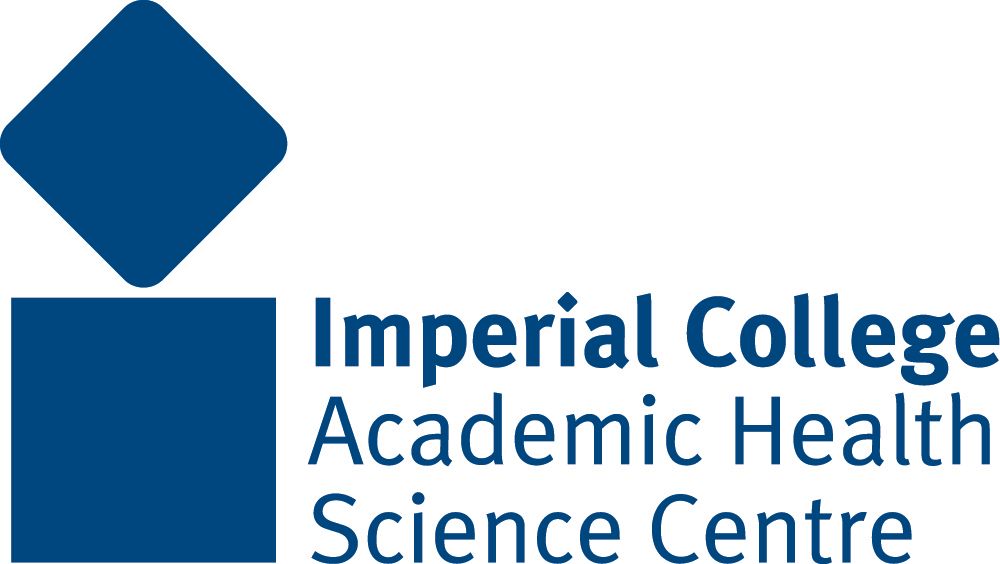Humans of health research
Interviews with researchers and patients working together to improve healthcare
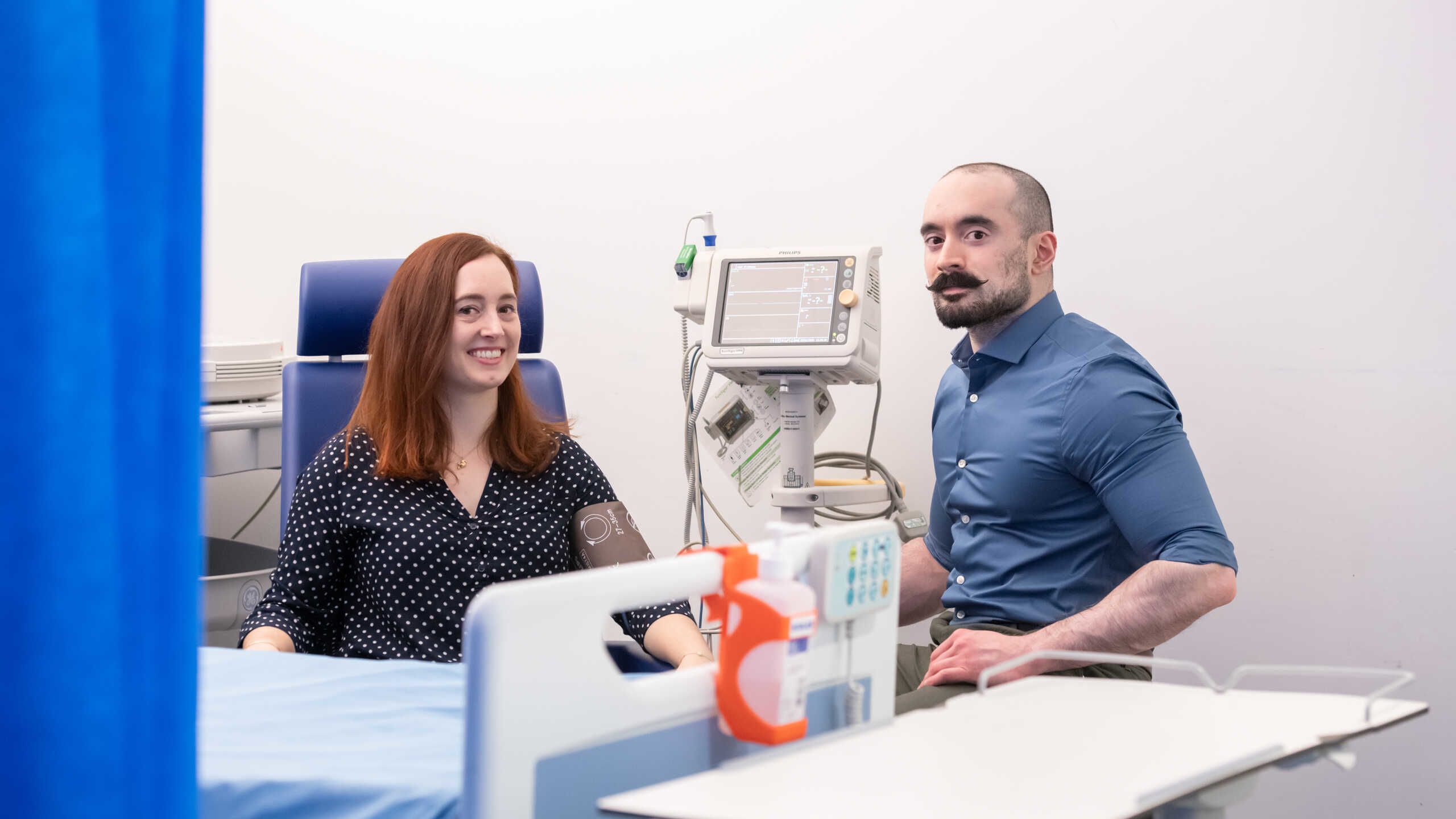
Healthcare research conducted by Imperial’s clinical academics is saving lives, improving patients' health outcomes and transforming NHS services.
To celebrate the extraordinary work of our clinical researchers, Imperial College Academic Health Science Centre has launched an online photography exhibition to spotlight some of Imperial’s clinical researchers and their innovative work. It also features the patients who have benefited, and whose experiences and input have influenced and inspired the research.
Covering a broad range of medical specialities, each portrait highlights what motivates these hardworking staff as well as demonstrating why their research is vital.
In this feature, the fifteenth in the Humans of Health Research series, we hear from two researchers on their research into rapid diagnostics to identify infections such as ventilator-associated pneumonia - a lung infection that develops in a person who is on a ventilator – more quickly and improving people’s experience and outcomes in breast cancer surgery. We also hear from a patient who is taking part in a trial on Polycystic Ovary Syndrome (PCOS) - a condition that affects how the ovaries work - and its links to other conditions such as diabetes.
Professor Suveer Singh
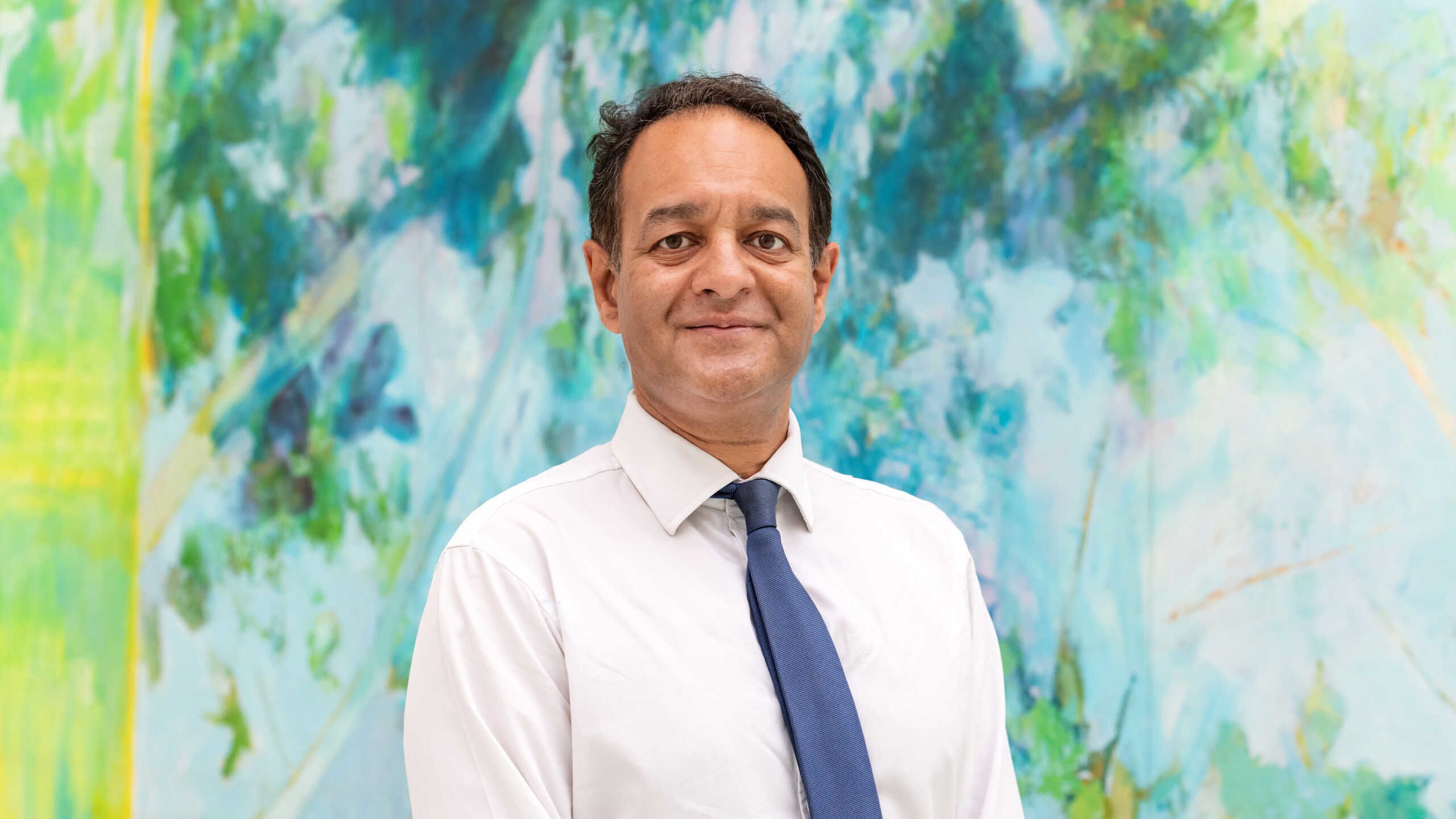
Professor Suveer Singh is a Professor of Practice (Respiratory and Intensive Care Medicine) at Imperial College London and Consultant in Respiratory and Critical Care Medicine at the Chelsea & Westminster Hospital NHS Foundation Trust, and Royal Brompton Hospital, London.
"I trained in respiratory and intensive care medicine and was offered a chance to do a clinical PhD at Imperial College London more than 25 years ago.
"I did a fellowship on sepsis and the therapeutic role of nitric oxide in severe sepsis at the Royal Brompton Hospital and National Heart and Lung Institute. It was three years of hard work, a really interesting personal journey and the opportunity to interact with a wider range of healthcare workers, physiologists and scientists.
“I get great satisfaction from completing a project, having it peer-reviewed and knowing that I’ve made a personal contribution to improving patient care.
"That was one of my first experiences of research (after my intercalated BSc at Medical school) and showed me what good research looks like- foundations, questions, methodology, and rigor.
"It helped me form my view of how research can fit into my own career and how I can contribute to the pipeline of studies that together push forward the boundaries of clinical science.
“My research is pretty diverse in the areas of respiratory and intensive care medicine. I have been involved with various bronchoscopic studies on airways disease- i.e valves for emphysema, and the development of bronchial thermoplasty – a heat treatment that reduces the amount of thickened muscle on the inside of the airway walls. It can help patients with severe asthma to breathe more easily.
“Research gives you the opportunity to step away from clinical work and stimulate other areas of the brain. Once you start a project, you find there are things that drive you to keep going.
“I have a particular interest in rapid diagnostics to identify infections such as ventilator-associated pneumonia - a lung infection that develops in a person who is on a ventilator – more quickly.
"I am also working on a project looking at the behavioural factors that influence clinicians’ decisions not to stop antibiotics when high performance tests show there is no infection. We’re looking at all the different factors that might be involved in making that decision such as the doctor’s grade and experience, and the hospital setting (intensive care or ward).
It’s important to recognise that really significant discoveries and developments are rare. They’re usually the result of lots of small building blocks being put together over time, so that the blocks get bigger and bigger.
"This engages me with different teams (Behavioural psychologists, students, multidisciplinary teams) and collaborators in other organisations, and that’s what is so interesting. We’re learning from each other and sharing different ways of thinking and trying out new ideas and developments, and that creates a kind of ‘crowd wisdom’.
"Our aim is to improve antibiotic prescribing and protect patients from harms caused by unnecessary antibiotic use, including the increasing prevalence of antibiotic resistance, where bacteria change in response to the use of these medicines so that they are no longer effective.
“I was always drawn to research after my BSc, and I’ve always been inquisitive and stimulated by the opportunity to potentially make improvements for patients. I wanted to understand why we do certain tests, techniques and procedures and think about whether it is always going to be that way, or if we can do things better by doing them differently.
“Research gives you the opportunity to step away from clinical work and stimulate other areas of the brain. Once you start a project, you find there are things that drive you to keep going. For me, there’s always an excitement around collecting data, analysing it and not really knowing if you’re going to get the answers you expect.
" A number of my patients have volunteered for research projects and have assisted with the methodology and design of trials. They have such an important influence and impact on my work.
"It’s fascinating when you discover something that you’re not expecting and then try to work out the explanation for it.
“It’s important to recognise that really significant discoveries and developments are rare. They’re usually the result of lots of small building blocks being put together over time, so that the blocks get bigger and bigger. Or like putting small pieces of a jigsaw together until you can see something meaningful that eventually leads to seeing the whole picture
"Sometimes it can feel like being caught in a tidal wave – you’re drawn along by your supervisors and mentors. You learn a lot about resilience and not making assumptions and sometimes you have to change your beliefs because of the evidence that is in front of you, that you have helped to create.
“I get great satisfaction from completing a project, having it peer-reviewed and knowing that I’ve made a personal contribution to improving patient care.
"Where I am now in my career, I’m able to supervise students with their research, and that is hugely rewarding and impactful. But getting positive feedback from patients about my research, that tops everything!
" A number of my patients have volunteered for research projects and have assisted with the methodology and design of trials. They have such an important influence and impact on my work.
“I think some of the key attributes to being a researcher are having an open mind, being willing to throw yourself into something irrespective of what the outcome may be and asking lots of questions - of yourself and others.
"You have to always be open to learning along the research journey, about the transferable skills you are acquiring and new information that can help us understand disease and develop new therapies.
“For those who are interested in a research career, I hope we can improve the awareness of the opportunities and the pathways into research. I certainly like to be part of that work so that people get the best opportunity they can.”
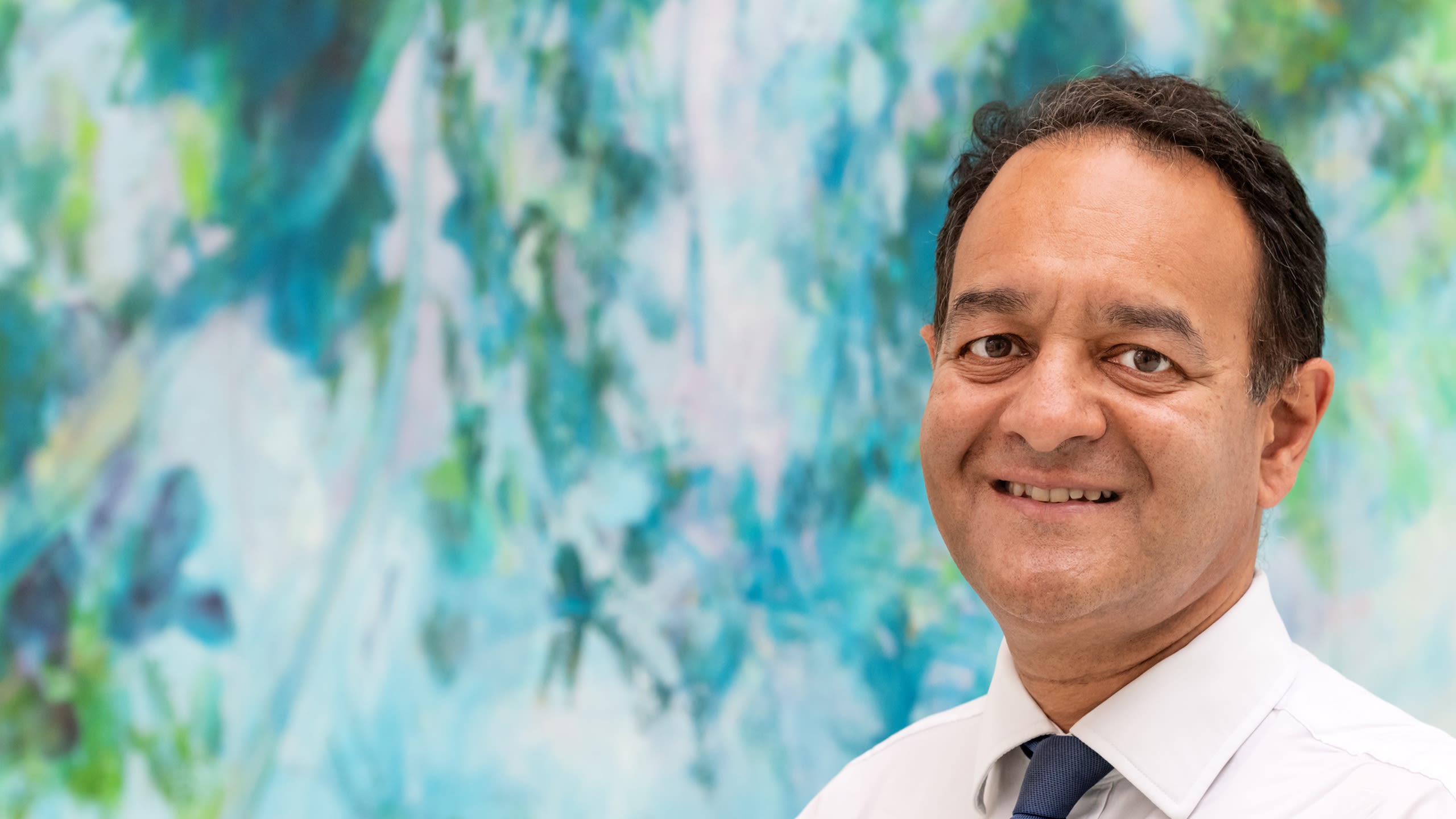
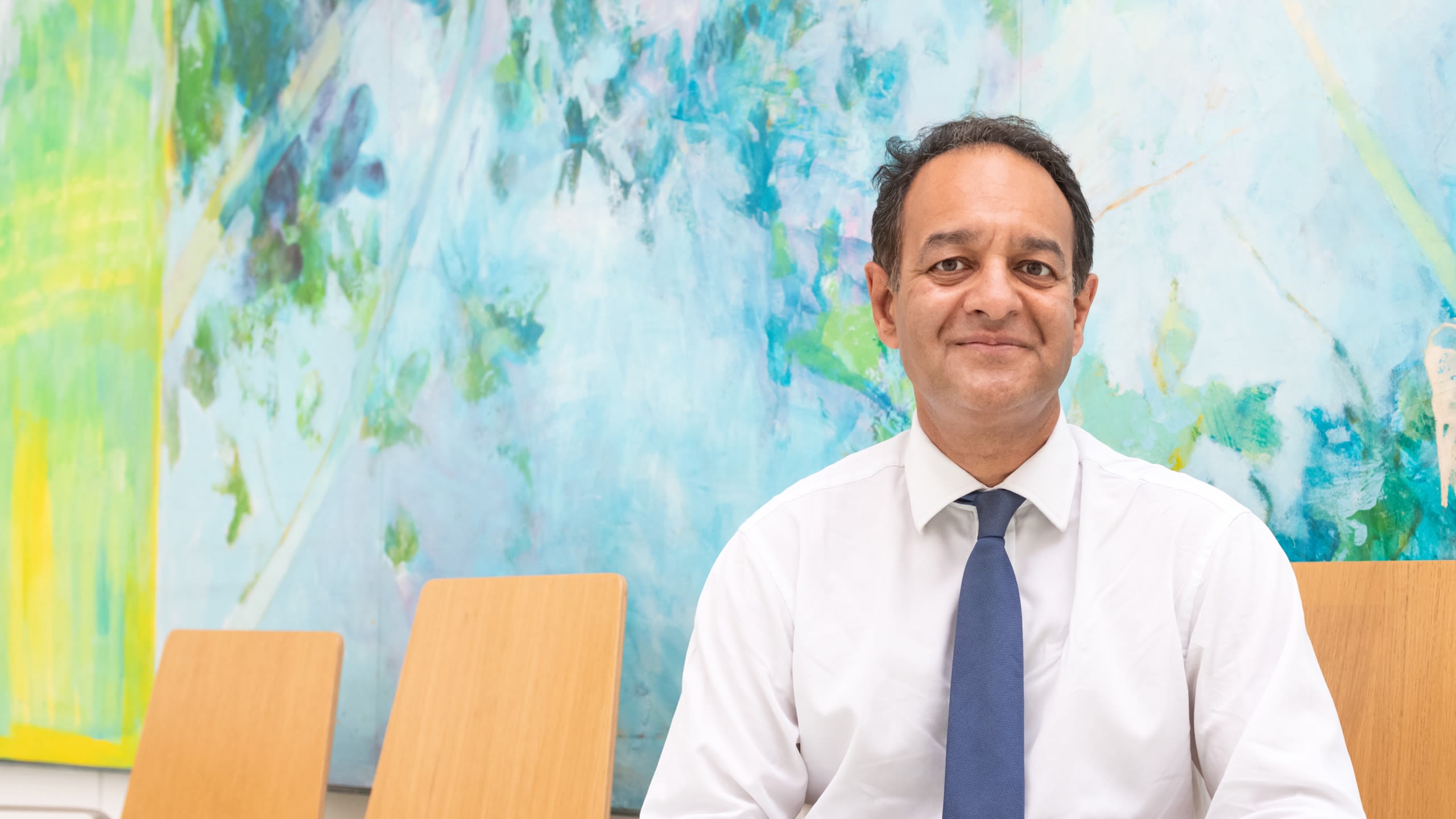
Juliette Hettema
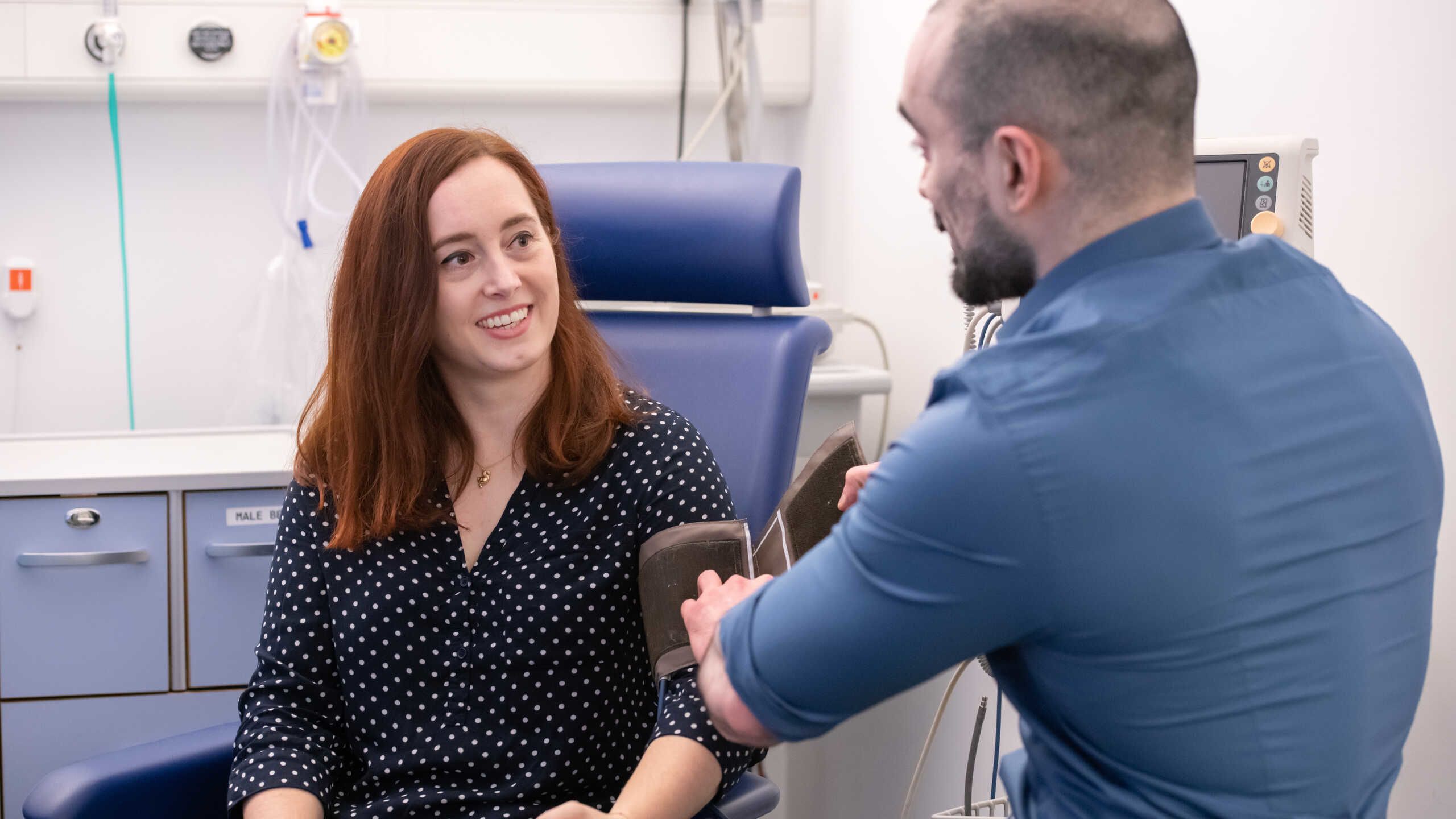
Juliette Hettema was diagnosed with Polycystic Ovary Syndrome (PCOS) in 2014. It is a condition that affects how the ovaries work. Symptoms of PCOS include irregular periods, facial hair and difficulty getting pregnant.
Juliette is taking part in a study called Dissecting Androgen Excess and Metabolic Dysfunction for an Integrated Systems Approach to Polycystic Ovary (DAISy-PCOS).
The DAISy-PCOS study is examining the metabolic nature of Polycystic Ovary Syndrome (PCOS) and its links to other health conditions such as diabetes, high blood pressure and heart disease. The study is led by the Institute of Metabolism & Systems Research at the University of Birmingham. Researchers at Imperial College London are also involved and St Mary's Hospital, part of Imperial College Healthcare NHS Trust is one of the recruitment sites for the study.
“I saw in the news that the University of Birmingham was given funding from the Wellcome Trust for PCOS research.
"I wanted to learn more about my condition as I don’t have a dedicated treatment plan other than the contraceptive pill. I also wanted to learn more about my own body and how I can manage my condition and have more control. I feel PCOS is often misunderstood and overlooked.
Research is really important, especially with PCOS because so many women have it - around one in 10 in the UK. There is also a mental wellbeing aspect related to PCOS because it does really get you down.
“I was diagnosed with PCOS as a teenager and back then I knew my body was not functioning as it should. I didn’t have regular periods and when I did they would be extremely painful, I would be rolling on the floor and I couldn’t get up and my mum would think I was making it up so I wouldn’t have to go to school. I had lots of acne as a teenager I am still quite hairy which makes me feel a bit uncomfortable.
“As part of the study, I did an interview and filled in a series of questionnaires about my condition to assess my mental and physical wellbeing. I also did tests such as one for sleep apnoea – a potentially serious disorder in which breathing repeatedly stops and starts – as well as blood tests.
Before taking part in this study, I didn’t talk about my condition at all. I kept it hidden because I didn’t want anyone to know I have it and I felt embarrassed.
“I also gave my saliva sample to measure hormones and to assess my risk of developing other conditions such as high cholesterol levels.
"There were many tests and as a patient you do have to dedicate some time (three – four hours) but I found the experience to be very simple, the staff friendly and I felt comfortable.
“I hope through research we can learn more about PCOS and one day find a cure. I hope my participation in research helps towards that.”
“Research is really important, especially with PCOS because so many women have it - around one in 10 in the UK. There is also a mental wellbeing aspect related to PCOS because it does really get you down. Before taking part in this study, I didn’t talk about my condition at all. I kept it hidden because I didn’t want anyone to know I have it and I felt embarrassed.
"Once I started talking about it I discovered some of my friends and work colleagues have it and now we support each other.
“I hope through research we can learn more about PCOS and one day find a cure. I hope my participation in research helps towards that.”
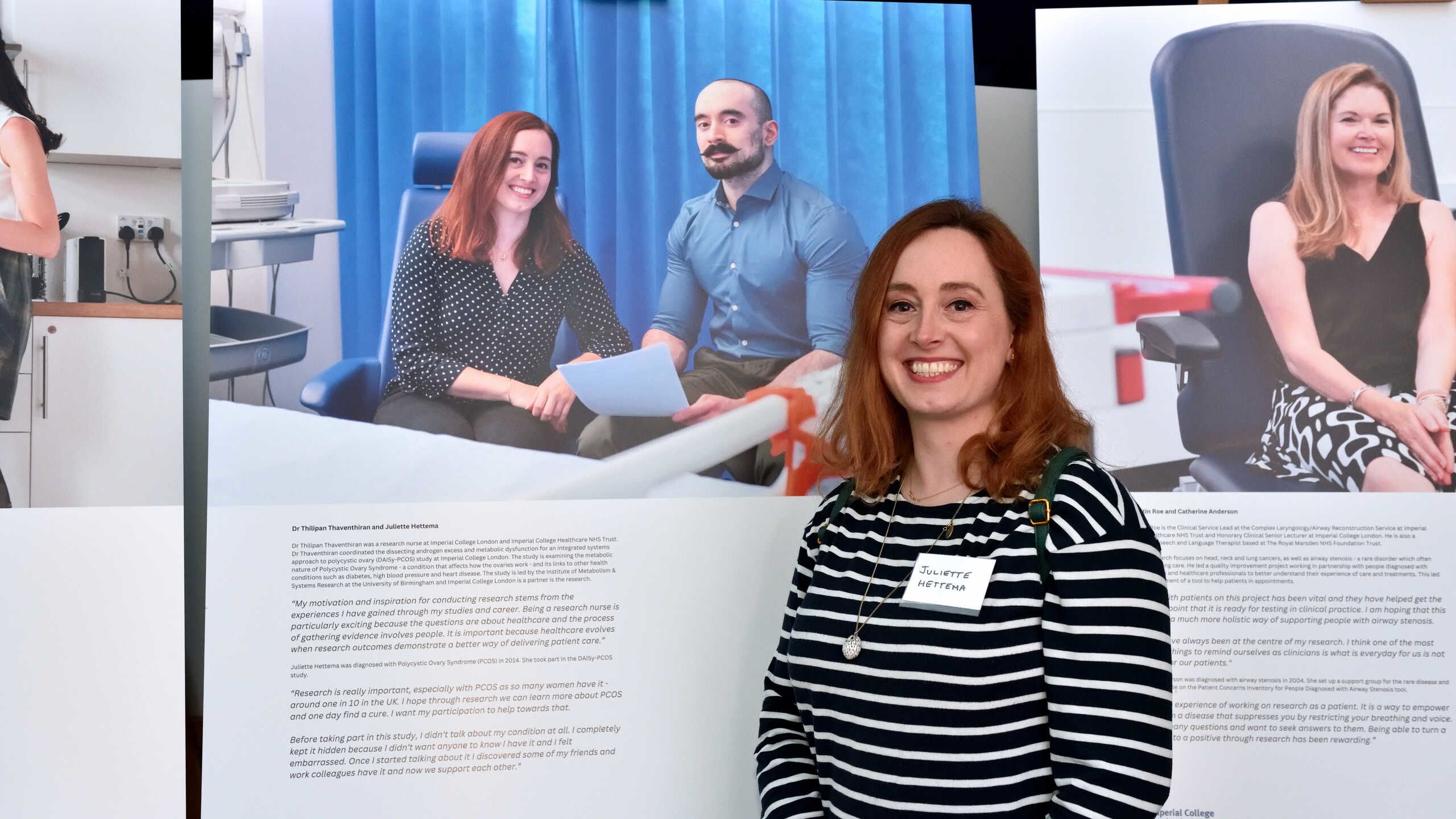
Daniel Leff
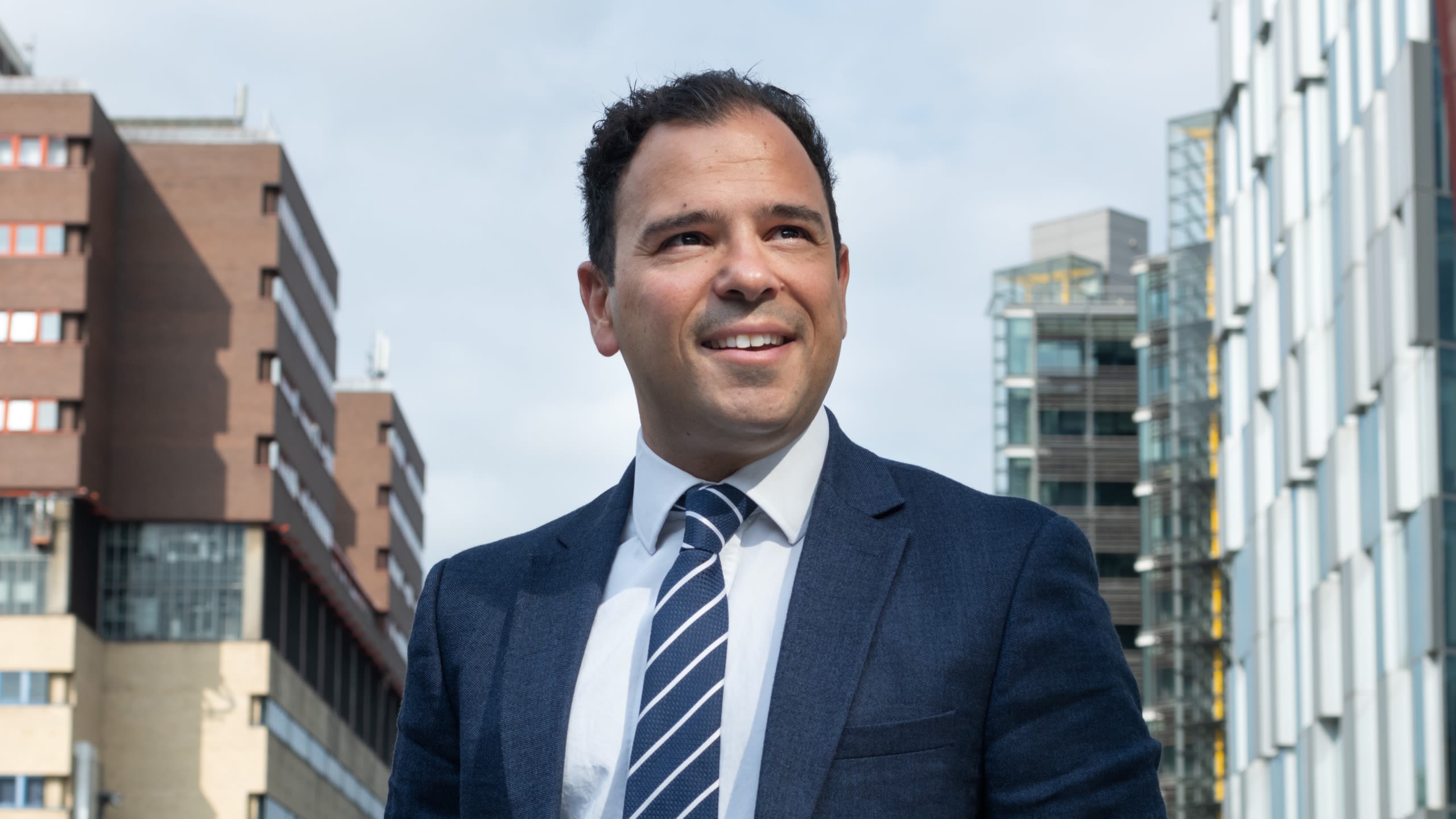
Daniel Leff is Reader in Breast Surgery in the Department of Surgery and Cancer at Imperial College London and Honorary Consultant in Oncoplastic Breast Surgery at Imperial College Healthcare NHS Trust.
Daniel’s research focuses on improving people’s experience and outcomes in breast cancer surgery.
He co-led the primary radiotherapy and deep inferior epigastric perforator flap reconstruction for patients with breast cancer (PRADA) trial which found that changing the order of treatments given to breast cancer patients could reduce side effects and improve outcomes.
"Whilst I see myself as a breast cancer surgeon first and foremost, research enables me to have a much greater impact, well beyond the patients I treat directly. It enables us to shape future practice and improve quality of care that cancer patients receive.
“The traditional clinical pathway of surgery, chemotherapy, radiotherapy left women waiting many months and even years for breast reconstruction after their operation.
"I wanted to do better for them. By offering radiotherapy before surgery instead of afterwards, we can carry out a mastectomy (an operation to remove the breast) with immediate reconstruction.
I see myself as a breast cancer surgeon first and foremost, research enables me to have a much greater impact, well beyond the patients I treat directly.
"The PRADA study proved this is both feasible and safe. I am now applying for funding for a follow-up study comparing pre-operative radiotherapy with post-mastectomy radiotherapy for surgical, oncological, and breast reconstruction outcomes, including quality of life.
“My main research passion is to be able to operate with greater precision. Historically, surgery for breast cancer has been rather imprecise – especially in operations that aim to preserve the breast.
“As a surgeon, you only want to remove the tumour and leave as much healthy breast tissue as possible. You remove what you can see and aim to take a ‘safe’ margin around the edges, so that no cancer cells are left behind to re-grow. But if you cut too close to the edges of the tumour, or fail to cut it all out, then the patient will need another operation a few weeks later to remove more tissue.
"Sometimes that can happen more than once and may eventually lead to a mastectomy, which can be distressing and traumatic.
“That makes me want to push boundaries. Obviously that requires a team effort, and I love being part of the academic community at Imperial: we have a truly multi-disciplinary approach.
Historically, surgery for breast cancer has been rather imprecise – especially in operations that aim to preserve the breast.
"Some of the innovations we’re working on bring together engineers, technicians, doctors, designers and healthcare economists. Individually, none of us has the knowledge or skills to overcome the challenges of improving breast surgery outcomes. But together, we are designing, creating and trialling new surgical methods.
“For example, we have the GLOW project to tag cancer cells with fluorescent, glow-in-the-dark probes that allow us to see the tumour while we’re operating, or under a camera immediately after the tumour is removed. This means we know straightaway whether we need to remove more tissue and only have to operate once.
“We’ve also just completed our first REI-EXCISE trial, testing the intelligent knife (‘iKnife’).
" The iKnife is based on electrosurgery, a technology invented in the 1920s that uses an electrical current to rapidly heat tissue, cutting through it while minimising blood loss. In doing so, it vaporises the tissue, creating smoke that is normally sucked away by extraction systems.
Going forward, I would love to see governments working together to make it easier to create, fund and carry out joint research projects across multiple countries.
"Our engineering colleagues realised we could connect the iKnife to a machine that would analyse the smoke plume coming off cells as they’re being cut. So, again, we know almost immediately – within 1.8 seconds – whether they’re cancerous.
"It has been really exciting to be involved in taking this project from development in the lab to its first ever clinical trials in the operating theatre.
“I’ve learnt many things from my research. The two most important are that collaboration is vital – across disciplines, hospitals and countries – and that patient-reported satisfaction is often as important an outcome as the clinical markers we set for ourselves.
“Going forward, I would love to see governments working together to make it easier to create, fund and carry out joint research projects across multiple countries.
"As a single surgeon, I might be able to sign up tens of patients to a study. As a centre, we might manage hundreds. Across the UK that could even be thousands, but internationally we would be able to recruit the numbers needed to give us definitive evidence that our innovations are working and translating into patient benefits.
“One of the best things about research is that it extends your impact as a clinician beyond what you can physically achieve with your own hands.
"For devices that are at a pilot stage and not yet commercialised, I think that’s going to be very challenging, but it makes complete sense!
“I’m also keen to continue our innovation with early detection of breast cancer. We’ve just finished a project called Mammobot. This is where we are trying to engineer a robot to diagnose cancer by inserting a very fine endoscope (a long thin tube with a camera inside it) in the nipple areola, for minimally invasive intervention. I’m now working on identifying funding to take this project to its next stage.
“One of the best things about research is that it extends your impact as a clinician beyond what you can physically achieve with your own hands.
"Of course, there are challenges: you need lots of energy and resilience to bounce back when ideas don’t work, or funding bids don’t come good. You have to move out of your silo and talk to lots of people – funders, patients, designers, engineers, clinicians in other specialties, but together the opportunity for us to make a difference is enormous.”
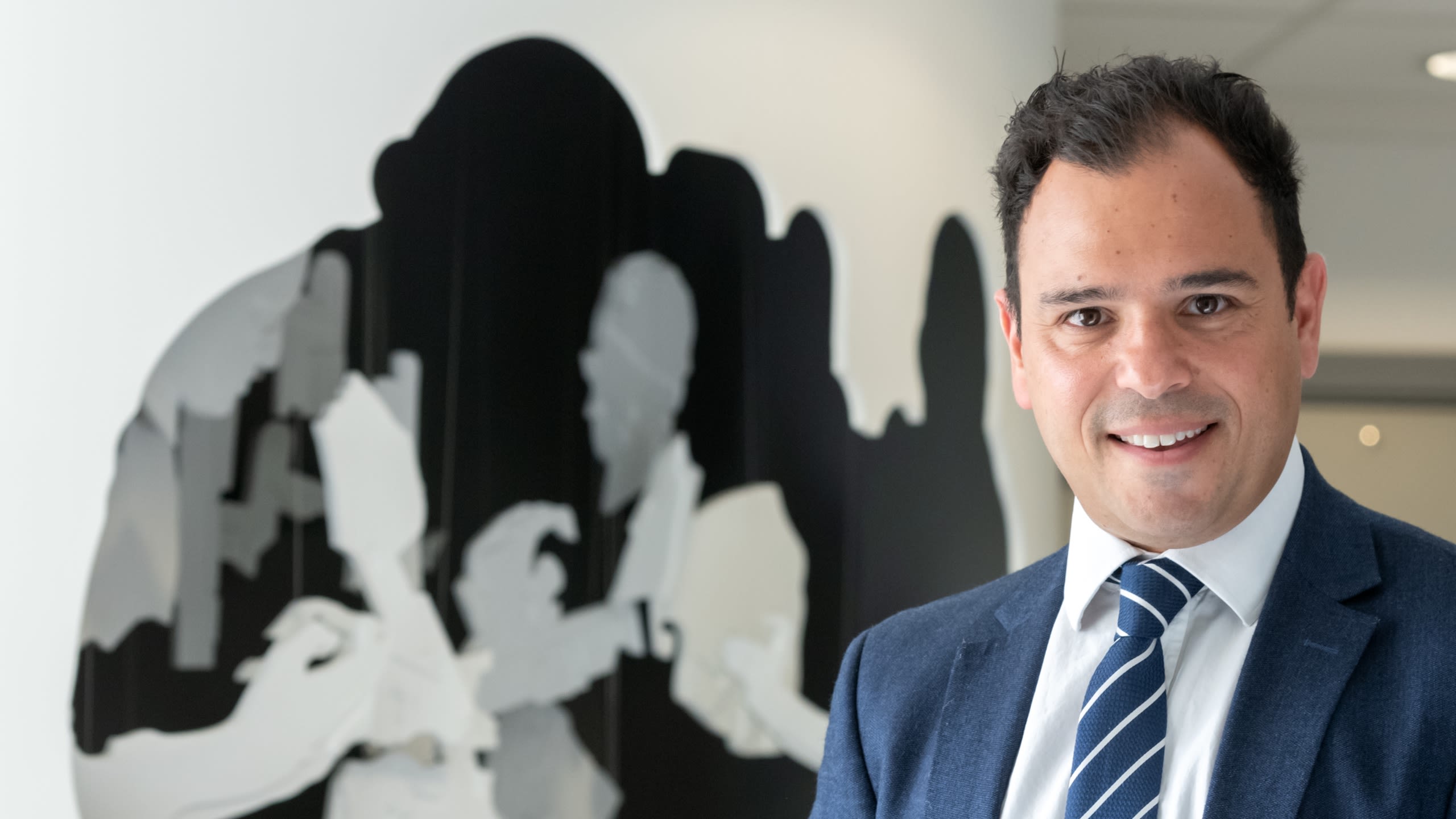
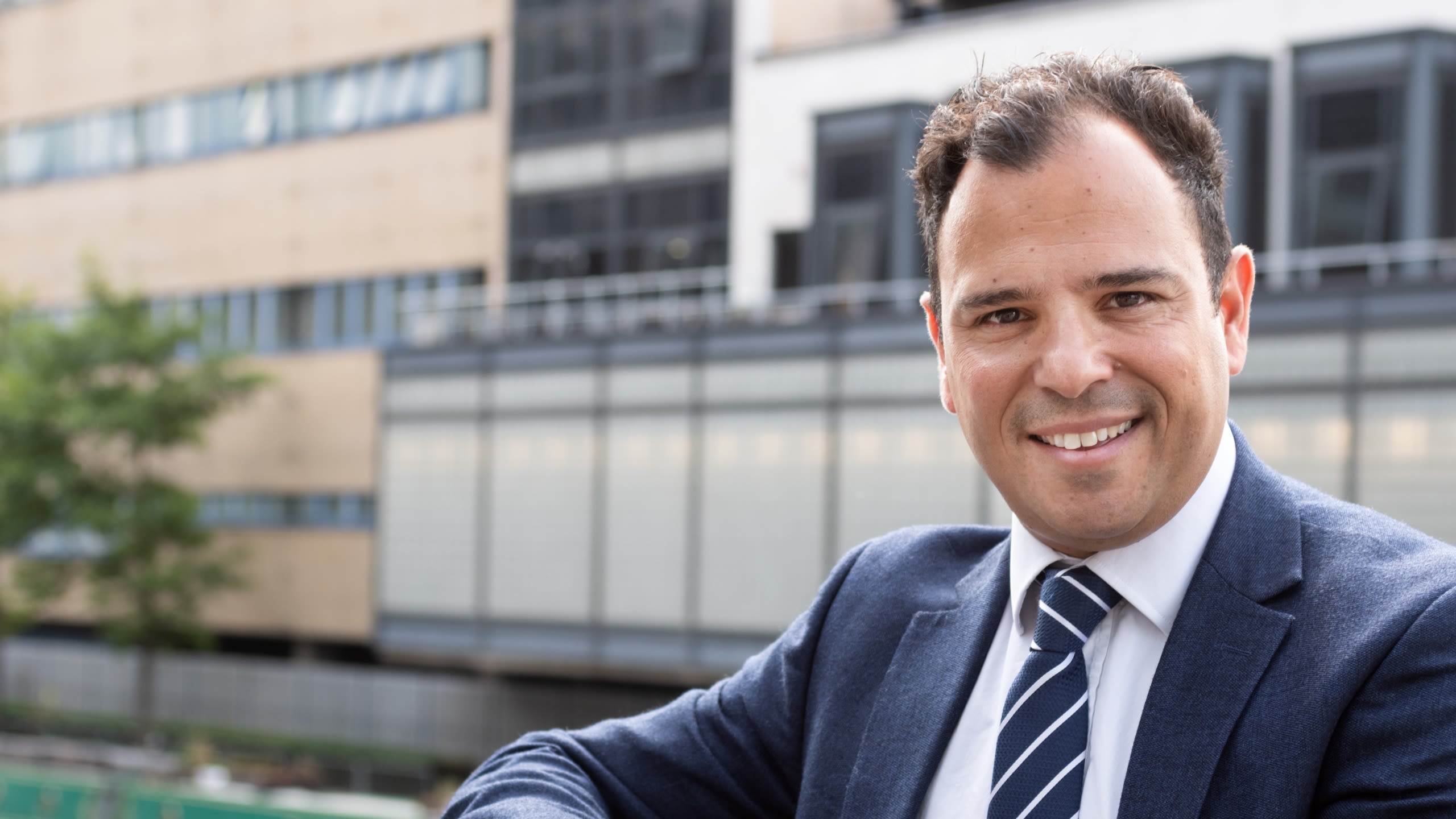
The Imperial College Academic Health Science Centre is a university-NHS partnership aiming to transform healthcare through research.


